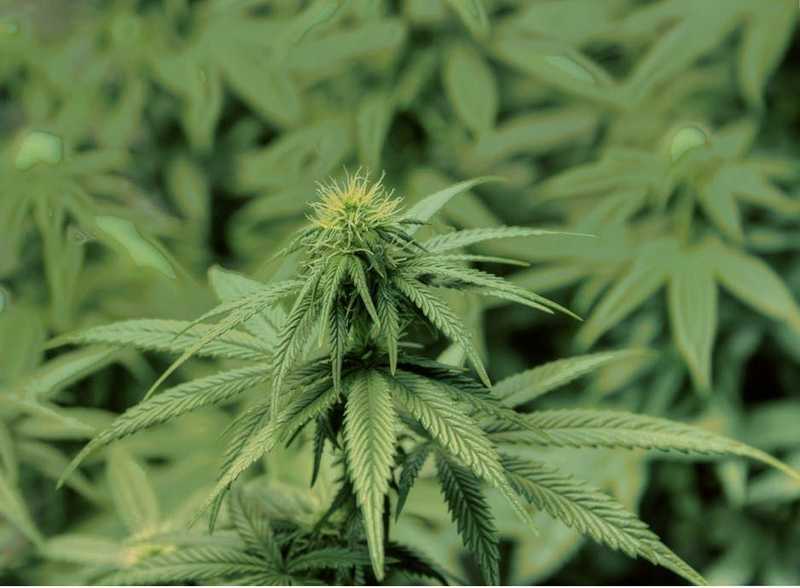Inflammation is a symptom that’s tied to a wide range of conditions. While inflammation is your body’s natural response to infection—and is intended to fight it off and help your body heal, chronic inflammation can lead to problems of its own. In fact, some researchers believe that it’s responsible for causing and advancing the progression of many illnesses. Due to the strong association between inflammation and diseases such as various cancers, autoimmune disorders and infectious disease, treatments that reduce inflammation and block the inflammatory process altogether could be incredibly helpful in treating a whole host of conditions.
Enter cannabis with its powerful anti-inflammatory effects. In this article, geared towards cannabis newcomers, we examine how marijuana is proving to be a crucial tool in the fight against inflammation. That said, an increasing number of people with inflammation-related conditions are now turning to cannabis to help reduce inflammation and the pain it causes.
FOLLOW US ON FACEBOOK & INSTAGRAM
Dabbing Cannabis Eases Danni’s Inflammation From Fibromyalgia
Dani, a 31-year-old professional in the San Francisco Bay Area’s cannabis industry, says that cannabis has helped her manage painful inflammation associated with fibromyalgia. While Dani used to enjoy an active lifestyle, a car accident at age 19 triggered such severe fibromyalgia that she had to start walking with a cane, getting regular steroid shots and popping a variety of painkillers to help manage the pain. Rattling off a long list of medications she was taking, such as Norco and Percocet, Dani says, “I literally was a walking pharmacy.”
Then Dani started working at the Oakland-based cannabis dispensary Harborside and quickly found that cannabis might be a better option. Still, she says it wasn’t until she started dabbing cannabis extracts that she was able to fully rely on this medicine. “I noticed that I needed a higher amount of THC, and flowers just wasn't doing it for me,” she says.
Dabbing offered the high doses of tetrahydrocannabinol (THC) she needed. (Because Dani also suffered from stomach problems, edibles were off the table.) “Concentrates really were a cleaner option for me and a way for me to really get the cannabinoid profiles that I really need," explains Dani. “I want to educate people and change the stigma about concentrates, because concentrates really saved my life. I got off of all of the pain medications, all the medications in general. I'm steroid-injection free for about eight years now.”
Dani now spends her time educating cannabis patients about the benefits of medicinal dabbing. Having replaced all of her addictive medications with cannabis, Dani no longer walks with a cane.
From Doubter to Believer, Megan Says Cannabis Is the Solution
Megan, a 43-year-old patient with a rare autoimmune vasculitis illness, says that cannabis has also helped with bringing down the inflammation she experiences due to her condition. Only 20,000 people in the U.S. have what Megan has. As such, there’s very little research dedicated to understanding the disease, and no well-researched treatments are available.
“I ended up relying on a large number of narcotics and controlled substances to manage my symptoms," says Megan. “I have a really high tolerance, and I had to use large amounts of medications in order to achieve any sort of relief from my symptoms. Over time, that led to definitively physical dependence upon multiple substances.”
Megan decided she needed to make a change. “Cannabis was pretty much the only treatment option that I hadn't really looked into,” she says, explaining that once she started consuming cannabis, two things happened: “Over a period of months, I lost a bunch of weight and also was able to start knocking out some of the controlled substances that I was taking.”
Megan says it’s been a journey. “I was resistant to the concept that cannabis could actually be the solution, not part of the solution, but the solution,” she says. “I honestly would not have believed that cannabis could really replace a medicine cabinet full of narcotics.”
Now, however, Megan’s a believer and uses cannabis in lieu of her prescription medications. “I was blown away by how effective it was,” she says.
Treating Inflammation With Cannabis
The science on cannabis as an anti-inflammatory is sound. Our body’s endocannabinoid system (ECS) can naturally reduce inflammation, but doesn’t always do so. Cannabinoids, when taken, can activate the ECS, triggering anti-inflammatory effects.
If you suffer from an inflammation-related condition and think cannabis might be right for you, the best first step is to talk to a doctor. You can consult with one of HelloMD’s knowledgeable doctors; it's easy, private and 100% online.
Whether you have a medical marijuana card or live in a state where you can purchase through recreational means, there are many cannabis options on the market today. Cannabis can help inflammation in many forms, so in some ways, this is about finding the best options for you. Whatever you try, remember that cannabis can affect people differently, so you might need to try a few options before you find the right one for you.
In the next installment of the Cannabis for Newbies guide, we’ll discuss using marijuana to help with painful muscle spasms.
Photo credit: Mark
